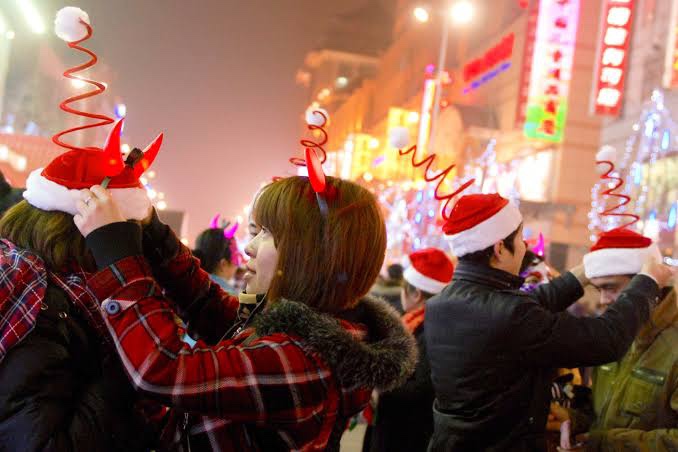Christmas celebrations spark cultural concerns across China

In the midst of glittering Christmas displays in major Chinese cities, including Shanghai and Chongqing, concerns about foreign influences have emerged. In southwest Yunnan province, a property management company has discouraged shopping mall tenants from selling Christmas cards and presents, emphasizing the need to avoid blindly following foreign traditions.
Similar sentiments have been echoed by schools in cities like Dongguan and Harbin, urging students and parents to refrain from adopting foreign customs without thoughtful consideration.
Notably, Gansu province’s Communist Youth League suggested an alternative celebration centered around “The Battle at Lake Changjin,” a Chinese film depicting a historical conflict during the Korean War. While China does not explicitly ban Christianity, there is a concerted effort to manage and govern all permitted religions due to concerns about foreign influences. The Communist Party, officially atheist, encourages adherence to its own cultural values.
Wang Huning, a prominent member of the Politburo Standing Committee, emphasized the sinicization of Christianity, urging Christian groups to interpret doctrines in alignment with contemporary China’s development, socialist values, and traditional culture.
Despite these reservations about foreign celebrations, China actively promotes its culture globally, with a recent focus on projecting soft power through traditions like the Spring Festival. While Christmas is not a public holiday in mainland China, the country is eager for the world to embrace Chinese culture, as seen in the recent designation of the Spring Festival as a floating U.N. holiday.
In a statement, a foreign ministry spokesperson emphasized the joy, harmony, and peace associated with the Spring Festival, expressing a desire to celebrate it with the global community. This juxtaposition highlights China’s complex relationship with foreign traditions and its simultaneous openness to sharing its own cultural heritage on the world stage.












